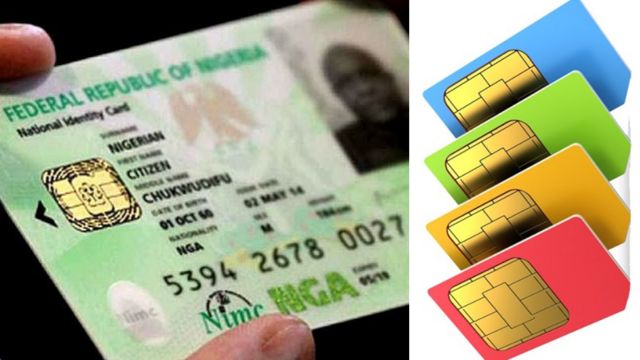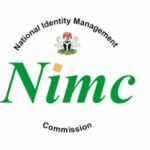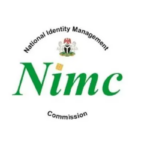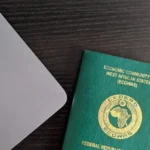By Mustafa Yusuf-Adebola
Concerns have been raised for a long time over the lack of data as well as duplicity of available biometric data of Nigerians. For instance, the Nigerian Communications Commission (Registration of Telephone Subscribers) Regulations, 2011 makes it mandatory for mobile telephone service licensees to capture and register biometric information (facial images and fingerprints) and other personal information and transmit the subscriber’s such information to a central database. Proxy registration is prohibited. This central database is managed by the Nigerian Communications Commission (NCC) but remains the property of the Government of the Federal Republic of Nigeria. It was the violation of a section of this regulation that got MTN a N1.04 trillion fine in 2016. To obtain a new driver’s licence and renew an existing licence, applicants are required among other steps to ‘proceed to the FRSC Officer at the Driver’s Licence Centre (DLC) for biometric data capture’. Last year, the FRSC made it mandatory for citizens to submit their NINs in order to proceed with licence registration.
In 2014, the Central Bank of Nigeria launched a Bank Verification System to capture biometric information of bank customers in order to authenticate customer’s identities at various points. Customers without a Bank Verification Number (BVN) cannot operate a bank account. Among other purposes, the purpose of this exercise was to maintain a ‘watch-list’ – that is, “a database of bank customers identified by their BVNs, who have been involved in confirmed fraudulent activities”. To obtain a passport, applicants are required to provide biometric data. The “e-passport” system uses fingerprints, processed by ID Solutions, to meet that objective of “one citizen, one passport.”
- Attacks on Fulani in S/West: Act now before we lose Nigeria, Tofa tells Buhari
- Bandits kill 21, abduct 40 in fresh Niger attack
To apply for the enhanced e-passport, the Nigerian Immigration Service states that “requirements for the Enhanced E-Passport is the same with old passports with regards to application types, in addition, National Identification Number (NIN) is required and mandatory for issuance of the New Passport.” At the NIMC (the agency responsible for issuing the NIN) and the Nigerian Immigration, Nigerians are required to provide biometric details. Unfortunately, babies cannot have fingerprints captured until they are six years old.
What this goes to show is that Nigerians have data scattered at different places but not harmonised. To add to this, some states also have their requirements – Lagos State has the Lagos State Residents Registration Agency (LASRRA) while Kaduna State has the Kaduna State Residents Registration Agency (KADSRRA). Ondo state once launched its Kaadi Igbe Ayo in 2012 while other states such as Osun Edo, Imo, Delta and Oyo have attempted various measures at introducing cards which capture biometric data.
It has been 14 years since Nigeria conducted its last census exercise. Since 2006, we have been relying on estimates and projections. It is not surprising that the failure to plan is planning to fail as a nation. During the pandemic, this became a problem for the Ministry of Humanitarian Affairs as questions were asked on how the Ministry arrived at ‘poor Nigerian households’. What makes it more worrying is how some of our data is managed by persons other than the State, that is, private companies. For proper planning and management, there is no gainsaying that the Nigerian government needs to streamline our data to avoid duplication and safeguard information across the board. The Nigeria Data Protection Regulation (NDPR) aims to safeguard the rights of natural persons to data privacy and foster safe-conduct for transactions involving the exchange of Personal Data; to prevent manipulation of Personal Data and to ensure that Nigerian businesses remain competitive in international trade through the safe-guards afforded by a sound data protection regulation.
In a world where data breaches have increased due to the increased use of technology, there is need to ensure that data protection is taken seriously and agencies or government bodies know the extent to which they are empowered to and can use data they have access to. To whom much power is given is much responsibility expected of.
A project that is thought about in short-term cum stop-gap approaches is bound to fail. At this point, there is no gainsaying that at the local government level is where ease of registration can occur. Why is this so? This is where the registration of births and deaths occur. The local government should be the first port of call for registration at birth – at this stage, a NIN can be given. As the child grows older, this is updated with more details till the child is old enough to have biometrics taken.
For now, the government appears to be more concerned about obtaining NINs indirectly through making the NIN a mandatory requirement for other government documents – the immediate effect of the deadlines and directives is the creation of opportunities for corrupt schemes to emerge, make ‘ease of doing business’ more difficult and affect revenue. The telecommunications sector is one of the top contributors to Nigeria’s GDP. Amidst a pandemic and times of uncertainty where government revenue has been largely impacted, there is no gainsaying what effect the temporary stoppage of SIM registration and disconnecting lines will cause. If a process becomes more complex, the purpose is defeated as those who feel they do not need the NINs will simply give up and this indirectly makes it difficult for the government to serve its people. Punishing a child for not eating food a parent did not provide in the first place does not wish hunger away.
Yusuf-Adebola is a forensic accountant and writes from Toronto, Canada

 Join Daily Trust WhatsApp Community For Quick Access To News and Happenings Around You.
Join Daily Trust WhatsApp Community For Quick Access To News and Happenings Around You.


